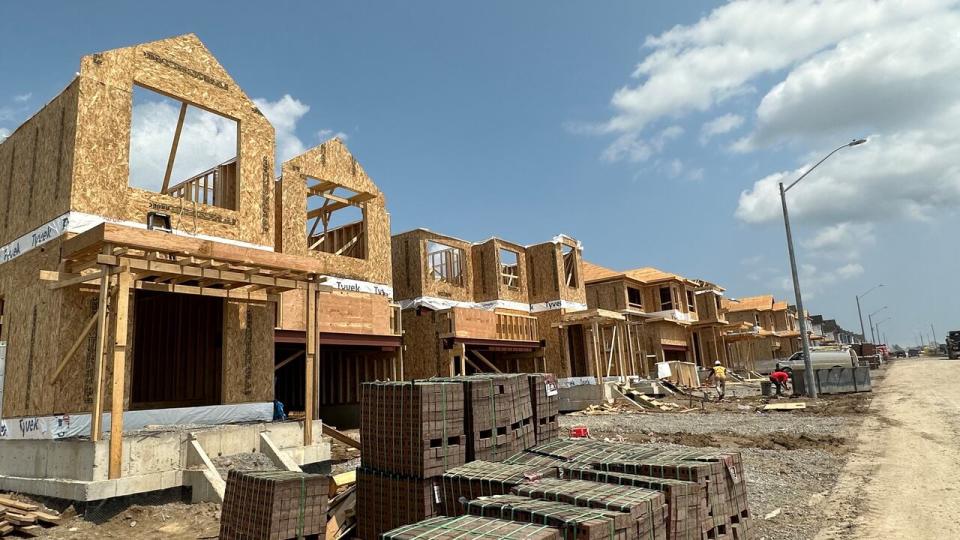Unless N.L. picks up the pace — and a hammer or two — province will be short 60,000 homes by 2030: report


The Canadian Mortgage and Housing Corporation says Newfoundland and Labrador will need to build 10,000 more housing units per year for the next six years in order to meet demand. (Mike Crawley/CBC)
The Canadian Mortgage and Housing Corporation says Newfoundland and Labrador needs to build 10,000 more homes a year than it already is for the next six years to meet anticipated demand.
Aled ab lorwerth, a deputy chief economist with the CMHC, highlighted a new report from the corporation that says nationally Canada needs to build an additional three million housing units by 2030 to address the national housing shortfall.
"Our best estimate at the moment is that Newfoundland and Labrador as a whole is short about 60,000 units … in addition to what is being produced anyhow. So clearly this is a challenge," ab lowerth told CBC Radio Monday.
"We're getting questions: 'Is this even feasible?' But I think what it's going to require is everybody pulling together. All orders of government, the private sector. Nobody's going to be able to do this on their own."
Ab lowerth said several things would need to change in order to meet the target of 60,000 units.
For example, he said, many municipalities still operate on paper-based systems and lack the technology necessary to streamline construction, while larger centres can often make the home-building process a lengthy one.
"In places that work fairly fast, like Edmonton, we're talking a year or two. But Toronto or Vancouver is three [to] five years-plus," he said.
"The digital revolution seems to have passed not only municipalities … but also the construction industry. There's just not a lot of technology being deployed in this entire area. So there's fairly fundamental technology that needs to be developed and implemented to accelerate all of this. At this moment, it's very slow and cumbersome."

Alexis Foster is the executive officer of the Canadian Home Builders' Association in Newfoundland and Labrador. (Henrike Wilhelm/CBC)
Alexis Foster, executive officer of the Canadian Home Builders' Association in Newfoundland and Labrador, said adding 10,000 units per year is an ambitious target.
"In our best year we built about 2,500 homes," Foster said Monday.
"I'm sure it is possible, especially if all levels of government come together, the public and private sectors come together and work together to reach those goals.… It's going to be a momentous undertaking."
Both Foster and ab lowerth said all types of housing are needed, including new rental spaces and apartments.
Those kind of spaces could help housing become more affordable in the long term, ab lowerth said, based on the idea that those with higher incomes moving into newer spaces opens up affordable options for people with lower incomes.
"If we have more rental construction, maybe more apartment construction in the city centres, this is mechanically the way that more housing supply will help affordability over the long term," he said.
Foster said the Homebuilders Association is also pushing for a lower benchmark interest rate, which she says is keeping people from building or entering the housing market.
"Right now we have so many people who need housing. There's a reason why we're in a housing crisis."
Download our free CBC News app to sign up for push alerts for CBC Newfoundland and Labrador. Click here to visit our landing page.


